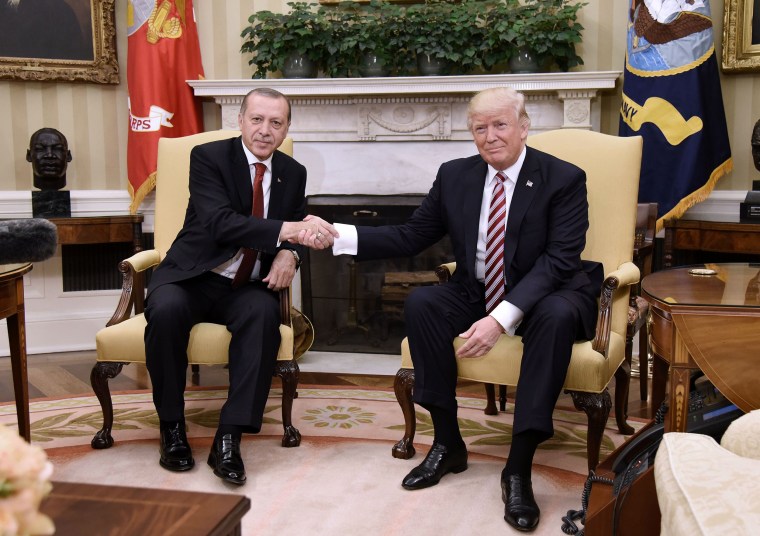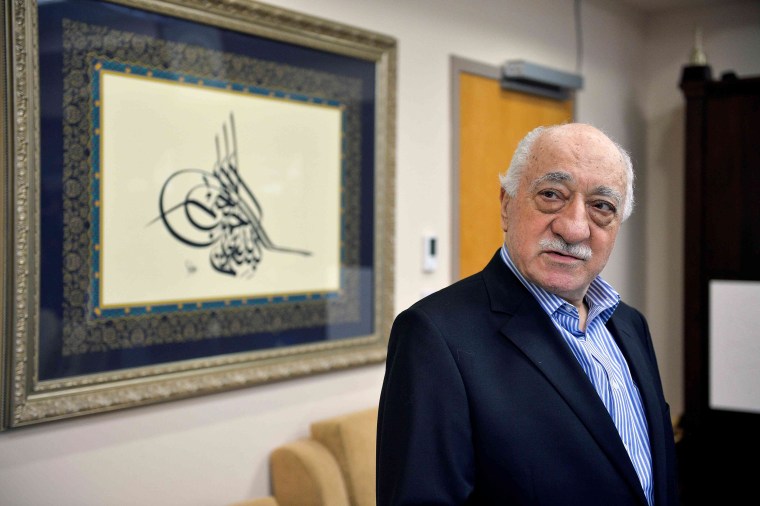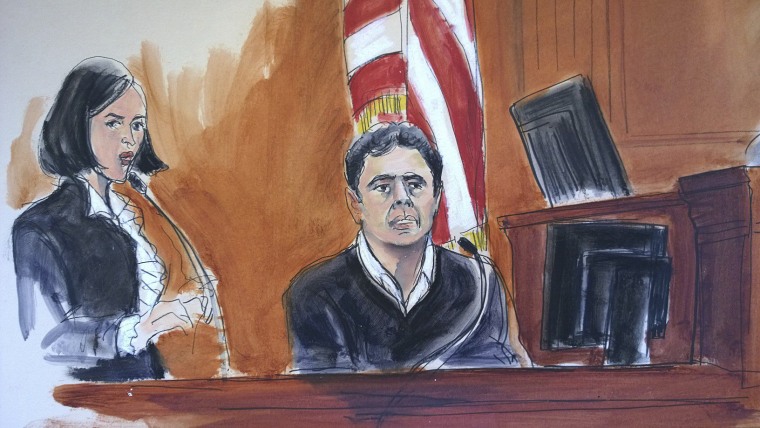Turkish President Recep Erdogan's fury over a U.S. sanctions-busting trial has been growing day by day, with his government writing to the Justice Department in Washington claiming it is collaborating with a terrorist group.
"We are deeply saddened that the American legal system has been used as an instrument for such an organization," Turkey's justice minister wrote over the weekend, according to the state-run Anadolu news agency.

It is the latest sign of Erdogan's unease with the money-laundering case, which has been unfolding for three weeks in a New York courtroom packed every day with an overflow crowd of Turkish media and immigrants.
An Istanbul bank executive is the sole defendant on trial, accused of helping to funnel billions in Iranian oil and gas money through American banks in violation of U.S. sanctions intended to deter Tehran's nuclear ambitions.
The star witness is a playboy gold trader with a pop star wife, a fleet of luxury cars and a multimillion-dollar art collection. Testimony has implicated powerful figures in Turkey, reaching all the way to the presidential palace in Ankara.
Even before the jury was selected, Erdogan tried to convince both the Obama and Trump administrations to make the case vanish. And Mike Flynn, just before his brief appointment as Trump's national security adviser, was allegedly offered bribes to scuttle the prosecution.
Turkey contends the prosecution is fueled by an exiled Erdogan rival, cleric Fethullah Gulen, accused by Erdogan of orchestrating a coup attempt from his Pennsylvania compound last year. The letter to Attorney General Jeff Sessions alleges that a key prosecution witness, a former Turkish police officer, is a follower of Gulen and, as a result, a fugitive terror suspect.

The officer, who admits he broke the law to smuggle out of the country documents from a 2013 corruption probe used in the U.S. trial, denied during cross-examination that he is a Gulenist. And U.S. District Judge Richard Berman on Friday admonished the defense for introducing what he called a "far-fetched conspiracy theory" hatched overseas.
But Erdogan loyalists in Turkey aren't backing off. The letter to Sessions gripes that the U.S. has not extradited Gulen and makes reference to $50,000 in financial assistance that the police officer received from American law enforcement before his testimony.
"We are wondering which legal justifications let some of your state institutions fund a terrorist wanted by Turkey," it said.
The United States would need credible evidence from Turkey that Gulen is a terrorist before it can send him back to his homeland. The European Union has also said there is no basis for calling Gulen or his network terrorists at this point.
In the midst of the high-stakes finger-pointing is the man on trial, Halkbank Deputy General Manager Hakan Atilla. He is one of nine Turks indicted in the sanctions-evasion scheme but the only one on trial — because he made the mistake of coming to New York for a business trip and did not cut a deal like his co-defendant, the flashy gold trader Reza Zarrab.

Prosecutors described Atilla as the architect of the Iranian operation, and Zarrab claimed the bank middle-manager devised the method to move cash through a series of shell companies using phantom shipments of goods.
The defense has painted Zarrab, 34, as a liar looking to save his own skin. In a filing Monday, defense attorneys told a judge that a transcript of a jailhouse recording proves Zarrab perjured himself when he denied on the stand that he told his uncle that in the U.S., a suspect has to admit to something they didn't do to get out of jail.
Last week, the defense took the risk of putting Atilla on the stand, and he strongly denied being part of the money-laundering plot.
"Did you ever conspire with Reza Zarrab to evade sanctions?" defense lawyer Cathy Fleming asked Atilla.
"Never," he said.
Bolstering his testimony was documentation showing he was on a plane without phone service at the very time that Zarrab claims he was receiving directions to process an illegal transaction.
Atilla, whose defense is being underwritten by the government-owned bank, is back on the stand Monday, when federal prosecutors will get a chance to question him.
